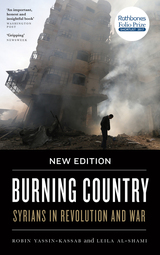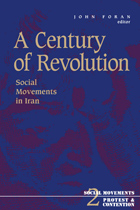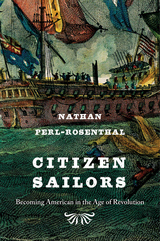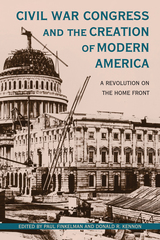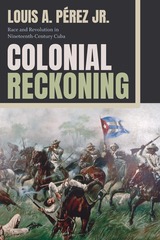Martin’s impressive new book, The Meddlers, considers the League of Nations and other interwar precursors of ‘neutral’ institutions of doux commerce to show how closely the ‘birth of global economic governance’ was entangled with empire.
-- David Priestland London Review of Books
Few standard accounts of international economic history hold up to scrutiny in Jamie Martin’s bold history of economic governance.
-- Dina Gusejnova Times Literary Supplement
Martin offers an alternative perspective on the crisis of global economic governance today, showing how the interventionist powers of the IMF and the World Bank have all along been rooted in empire and colonialism.
-- Daniel Steinmetz-Jenkins The Nation
Explains how the unparalleled economic coordination among the allies during World War I (‘a system of government purchasing, price-fixing, distribution and transport’) laid the groundwork for attempted delegations of sovereignty after war ended. Martin recounts in fascinating detail how these institutions in the 1920s imposed austerity disguised as debt relief, and the hapless efforts of smaller debtor nations and Germany to resist.
-- Robert Kuttner American Prospect
Martin’s account is well worth taking seriously, and not only because it allows us to expose the rhetoric of cooperation and development that justifies an exploitative and unequal international order. Indeed, to challenge capitalism on a local and national level, we need to understand how the capitalist class organizes and projects its power internationally.
-- Dan Smith Jacobin
[The Meddlers] arrives at a critical moment, as many countries are asking the IMF and other international institutions to help them address economic and environmental crises…Martin offers a helpful economic and social analysis of the history of international intervention in sovereign economies.
-- Lars Erik Schönander Commonweal
Martin’s research skills are impeccable, and his granular method allows us to see the actions of the interwar international organizations unfolding in real time…Remarkable.
-- Quinn Slobodian H-Diplo
The Meddlers is an eye-opening, essential new history that places our international financial institutions in the transition from a world defined by empire to one of nation states enmeshed in the world economy.
-- Adam Tooze, Columbia University
Fills a major gap in scholarship that will be essential to historians, legal scholars, economists and political scientists who study global economic governance…Required reading for policymakers and advocates looking to fully understand a system in need of deep reform.
-- Kevin Gallagher LSE Review of Books
Martin has written a fascinating new book on the little known institutions that created international control over the world economy…His ability to synthesise so many different sources into one story is impressive.
-- Dan Smith Business History
The many rich veins of potential research inspired by Martin’s book are testament to its comprehensive scope and thoughtful analysis. This is a first-rate work of international history.
-- Daniel Gorman Diplomatic History
Very interesting.
-- Diane Coyle Enlightened Economist
Overall, the book provides a wealth of historical detail and perspective about the development of these [international financial institutions], and students of history will find much to learn from it.
-- Peter J. Morgan The Developing Economies
[A] comprehensive history of the formation of international financial institutions, which opens at the close of the Great War, a quarter century before Bretton Woods. [Martin’s] book is a deeply researched contextualization of what led to the 1944 New Hampshire conclave that birthed the IMF and World Bank.
-- Jeff Kearns Finance & Development
In his engaging and clear-eyed new book, Jamie Martin traces the origins of what he calls ‘global economic governance’…Complementing histories of the interwar economy that have focused on trade and finance, Martin offers a more integrated and holistic picture…Readers will find much to grapple with.
-- Friedrich Asschenfeldt and Liane Hewitt H-Soz-Kult
Extraordinary… Martin shows how international institutions intervened in global capital and commodity markets in ways that shaped and limited domestic policies, especially for states with uncertain or partial sovereignty.
-- Laura Phillips-Sawyer Business History Review
Students of economic history, international development and international law will benefit from Martin’s deeply researched history of these organizations and their predecessors. The Meddlers includes profiles of their architects, stories of resistance to their interference, and questions of institutional legitimacy that remain relevant today. The book is likely to teach analysts, economists and policy-makers something new about their current or former employers.
-- Carey K. Mott International Affairs
Insightful and innovative…Martin reconstructs with precision and analytical depth the salient moments of the transformations that particularly affected the functioning of the League of Nations and of the first international bank.
-- Albertina Nani History of Economic Thought and Policy
The Meddlers is a forceful contribution to an expanding field of thought-provoking historical examinations of ‘self-determination,’ especially during global capitalism’s first half of the twentieth century.
-- Allan E. S. Lumba Toynbee Prize Foundation (website)
The Meddlers is a brilliant and revealing history of the imperial origins of contemporary institutions for global economic governance. It is essential reading for anyone concerned with the past, present, and future of the global economy and the institutions we have created to manage it.
-- Tara Zahra, University of Chicago
A compelling and original history of the way new international economic organizations interfered with national economic sovereignty in two world wars, and the economically tumultuous period between them. The Meddlers is an important and timely contribution to global political and economic history.
-- David Edgerton, King’s College London
The Meddlers is a deeply-researched and intelligent treatment of an important subject—that is, just how our organs of international economic governance came to exert the influence they do.
-- Susan Pedersen, Columbia University
The Meddlers advances a persuasive argument about the origins and evolution of global economic governance. It charts the evolution of legal norms and institutional practices—not just one of the most under-studied aspects of global governance, but also the most challenging to reveal. The range of national and international agencies and actors is impressive; the juxtaposition of different agencies novel and revealing.
-- Patricia Clavin, University of Oxford

